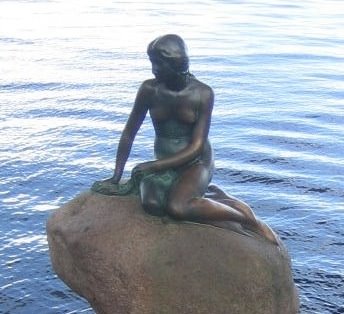Monday, July 23, 2007
phase II and the beginning of the end
In response to tension and confusion on camp regarding the end of voluntary repatriation and the role of the UNHCR on camp, at the advice of the international volunteers, PCO changed the Peace Cell discussion topic for the first half of July from economic growth to the future of refugees at Buduburam. To avoid any accusations of getting political, we informed the UNHCR and the Ghana Refugee Board of what we were doing, and intentionally avoided any mention of either body in our new questions. The questions we asked were, 1) What are your feelings regarding repatriation?, 2) What challenges do you expect to encounter in integrating into the Ghanaian community?, and 3) What can the community do to assist each other at this transitional time? For the first question, discussion focused on the traumas experienced in Liberia, the ongoing problems there, and the desire for resettlement. Most refugees, it seems, despite the fact that they have, formally or informally, learned a great deal in Ghana, claim they want to be resettled in a third, Western, country, if only for a few years, so they can learn a skill they can use to help rebuild Liberia. The second question revealed the degree of tension between Liberians and Ghanaians, much of which is normally not discussed. But there was one Liberian boy murdered a few years ago between camp and the nearby village where I live, and his death is now used as an example as how unfriendly and unwelcoming Ghanaians can be. Interestingly, the attitude of Liberians in Zone 12, who rent their homes from Ghanaians and who have Ghanaian neighbors, is much more positive towards integration - they have a much better opinion of Ghanaians in general, and accept that they must change some to integrate, but that it is certainly a viable option. While questions 1 and 2 were written as ways for PCO to collect information on the opinions of the refugees on camp, question 3 was primarily for the sake of the community members themselves, to think about what they could be doing for themselves, for each other. Unfortunately, a lot of the answers were about what the UNHCR, what the white volunteers, what the western world, et cetera should do for them. As volunteers we started to get defensive, and after hearing meeting after meeting of the same answers we were getting quite tired of our topic. We finally finished meeting with every zone last Wednesday, and have moved on to economic growth. Now, however, we are summarizing the meeting minutes and on Wednesday Kyle, another volunteer, and I will be going into Accra, finding an air-conditioned coffeeshop, and writing a report for the UNHCR and the Ghana Refugee Board tellin them, this is what people on the ground think. Whether the information will be of any use to them, whether they will take it into consideration, who knows? But at least we are doing our part to get their voices heard. Early next week, Tuesday I think, we're trying to get an appointment with the UNHCR and the Ghana Refugee Board to present our report. Wednesday evening I board a plane and head back across the pond.
Subscribe to:
Post Comments (Atom)

2 comments:
The other night Genia was telling us about the Truth and Reconciliation program that was done in S. Africa, and it sounded like a very powerful (and moving) process. Is is similar to the any of the work that PCO has done/is doing?
The poem "Creed," by Stanley Moss:
I salute a word, I stand up and give it my chair,
because this one Zulu word, ubuntu,
holds what English takes seven to say:
“the essential dignity of every human being.”
I give my hand to ubuntu—
the simple, everyday South African word
for the English mouthful.
I do not know the black Jerusalems of Africa,
or how to dance its sacred dances,
I cannot play Christ’s two commandments on the drums:
“Love God” and “Love thy neighbor as thyself.”
I do not believe the spirits of the dead
are closer to God than the living,
nor do I take to my heart
the Christlike word ubuntu
that teaches reconciliation
of murderers, torturers, accomplices,
with victims still living.
It is not blood but ubuntu
that is the manure of freedom.
Post a Comment